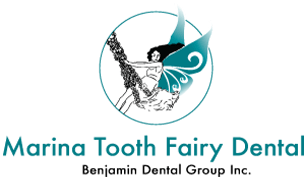In the past 50 years the number of people in the United States who smoke cigarettes has dropped a dramatic 23 percent. However, the risks of tobacco use have not changed. Tobacco is not only dangerous to your heart and lungs, it can also affect your oral health.
More than Just Stained Teeth
From the mild side effects tobacco can cause, including bad breath, tooth discoloration, buildup of plaque and tartar, to the more sinister effects – including increased risk of oral cancer, loss of bone within the jaw, gum disease and any number of resulting complications — tobacco is an oral health risk.
Tobacco can cause serious health issues by breaking down the attachment of bone and soft tissue to your teeth. Because of this breakdown, the use of tobacco makes smokers much more susceptible to infection and numerous diseases. In fact, 90% of people who have cancer of the mouth, throat, or gums admit to using tobacco in some form.
Cigarettes, cigars and pipes aren’t the only culprits; smokeless tobacco can be just as detrimental to oral health, if not worse. In fact, there are twenty-eight chemicals found in chewing tobacco alone that are proven to increase the risk of cancer in the mouth, throat, and esophagus. Chewing tobacco and snuff actually contain higher levels of nicotine than those found in cigarettes and other tobacco products, making it worse for your oral health. Smokeless tobacco can irritate gums causing gum tissue to recede, which exposes the roots, and ultimately makes teeth more susceptible to decay.
Help Is Just Next Door
The only way to help eliminate these risks is to not use, or to quit using, any tobacco products. Actually, simply reducing tobacco use is proven to help lower your risks. Nicotine is a highly addictive chemical and it is often difficult to quit. If you feel that it is time to reduce your risk of cancer, gum disease, infection and other oral complications, your dentist or doctor can help you create a plan to help you quit using tobacco, along with prescribing certain medicines or programs to help you kick the habit. While the best way to stop is to never start, it’s never too late to quit. Talk to your health professional for best advice on ways to quit using tobacco.
EqSource: Revenue Well & Marina Tooth Fairy E-Newsletter
